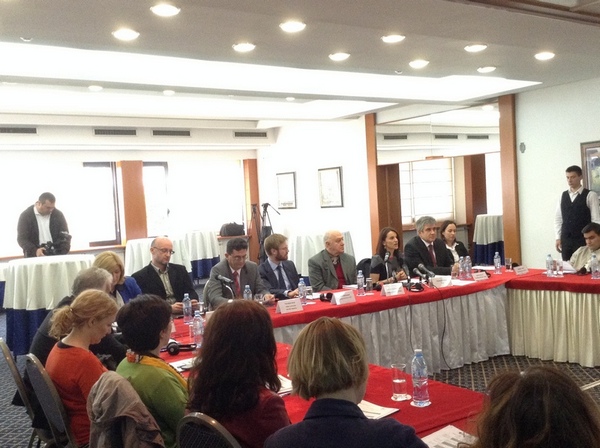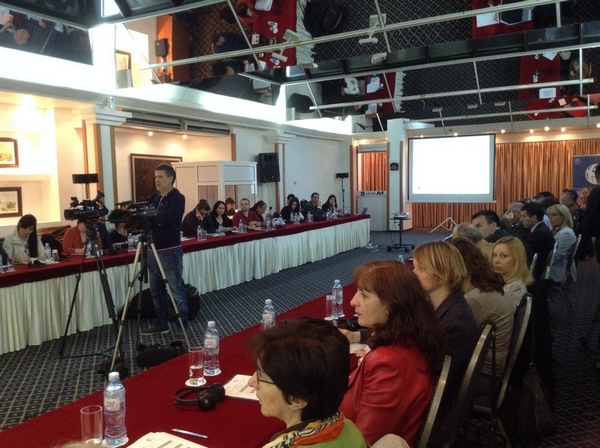Progress and Issues in the Area of Public Procurement
Transparency – Serbia (a part of the Transparency International network) has published today the findings of a study concerning the first year of application of the Public Procurement Act. This Act, as the most important anti-corruption regulation adopted during the term of the previous Government, brought significant improvements, but is not yet fully enforced. The success of the Act largely depends on effective supervision; however, the capacities of the Public Procurement Office, which is to make a key contribution to the process, are still insufficient.
The study carried out by TS shows that the biggest improvement has been made in increasing transparency, by publishing a large number of information on the Portal. In 10% of the cases, however, contracting authorities failed to publish required documents, and the option to publish useful information (procurement plans, estimated value) where this is not required is rarely pursued. In addition, the study shows strengthened competition in public procurement procedures, resulting from a decrease in the share of negotiated procedures in the second half of 2013, as well as from new rules concerning low-value procurements. However, the fact that only 42% of the bids in low-value procurements come from companies not directly invited to submit bids, and that the „uninvited“ companies are only awarded one quarter of such contracts, show that competition is still insufficient. The planning is not realistic enough, and is further negatively affected by budget revenue issues. In roughly 40% of the monitored procedures, significant savings relative to the estimated value have been observed. Very few amendments to public procurement contracts have been published, and the contracting authorities unjustifiably requested to apply the negotiated procedure in a large number of cases.


The legislative framework was further improved through implementing regulations, the most important among them being the Rules concerning the content of the document regulating in detail the public procurement procedure within the contracting authority, dated December 2013,under which all contracting authorities are required to regulate the planning and supervision of the public procurement process. The Anti-Corruption Plan in Public Procurements has been drafted by the Public Procurement Office and the Anti-Corruption Agency, but has not yet been adopted by the Government. The Government decree regulating in detail the enforcement of public procurement procedures in the defence and security sector has also not yet been adopted. The new Misdemeanours Act confirmed a longer statute of limitations for violations of the Public Procurement Act, which was a major issue in practice. However, the Act does not apply to high-value procurements, such as procurements financed pursuant to international treaties or foreign loans granted by international financial institutions.
Only a part of these problems will be solved by implementation of the Anti-Corruption Strategy. The updating of the Public Procurement System Reform Strategy and the accompanying action plan is underway. But other amendments are still required, in particular amendments to the Budget System Act (as regards planning) and the Criminal Code (introduction of a new criminal offence relating to public procurement, which is currently inadequately defined). The Public Administration Reform Strategy is directly contrary to the Public Procurement Act, as it disputes the supervisory authorities of the Public Procurement Office and leaves scope for conflicts of jurisdiction between the Office and the Ministry of Finance.
The new legal concept of Civil Supervisor was applied in several procurement procedures with a value exceeding RSD 1 billion, but the competent parliamentary committees have not yet discussed the reports of these procedures.
The State Commission for the Protection of Rights considerably increased its efficiency in the adoption of decisions on the protection of rights, but increased activity of this body in the annulment of contracts and misdemeanour proceedings is yet to be seen. The State Audit Institution has initiated an „audit of the appropriate use of funds” on a selected sample (business travel), but its findings have not yet been communicated to the public. The 2012 SAI audit also revealed numerous violations of the basic public procurement rules (e.g. anti-competitive foreclosure, conduct of procurements not meeting the requirements). There are still no records on the implementation of new rules relating to the annulment of contracts, violation of rules, or sanctions imposed in cases of collusion between bidders.
The Public Procurement Office still lacks personnel that would allow to fully monitor the public procurement process. The situation is much better when it comes to the State Commission for the Protection of Rights and the SAI, but equally challenging when it comes to budget inspection and internal audit. Thus the Public Procurement Office, which was vested with significant new oversight authorities concerning the application of the Act by no less than 5,000 contracting authorities, has only engaged seven new employees, and that only half a year after the Act entered into force.
We hope that the application of the Public Procurement Act will be subject to serious scrutiny by the National Assembly and that the identified issues will be eliminated in the shortest possible time.
Material:
- Additional Procurements in Negotiated Procedure, March 2014.doc
- An Analysis of the Practice of Amendments to Public Procurement Contracts, March 2014.doc
- Enforcement of the Public Procurement Act- Main Findings on Transparency and Low-Value Procurements, March 2014.doc
- Press release Progress and Issues in the Area of Public Procurement, 31 March 2014.doc



















